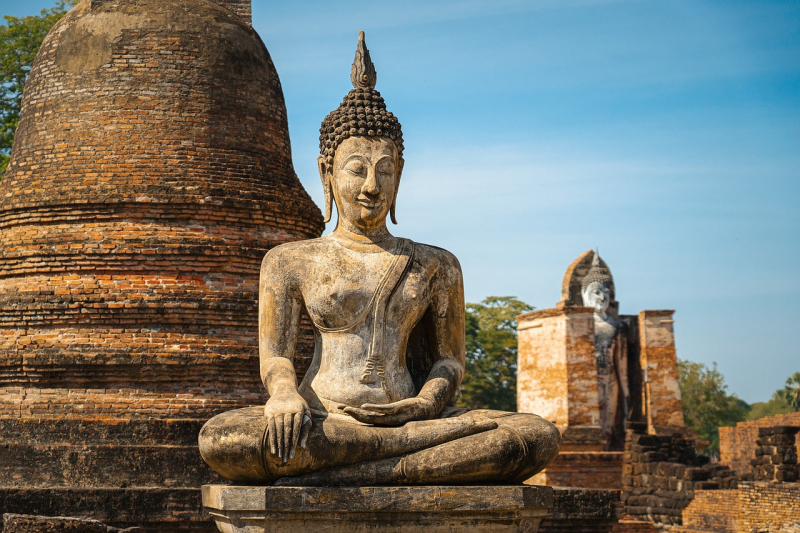Non-theistic religion
"Buddhists do not adhere to a belief in a god" is one of the most interesting facts about Buddhism
Considered a non-theistic religion, Buddhism does not center around the worship of a personal creator god, unlike many other major religions. Its core teachings are directed toward comprehending the nature of human suffering and the path to liberation from it. This path involves understanding the Four Noble Truths, following the Eightfold Path, and nurturing one's wisdom, compassion, and mindfulness to attain liberation.
Buddha is honored as a Teacher, not a divine being or god, leading others toward liberation from suffering. While Buddhism does not embrace the idea of a creator god, it acknowledges the existence of diverse beings in different realms. However, these beings are neither immortal nor all-powerful, and like all others, they are also subject to the cycle of birth and rebirth.
Buddhism's non-theistic essence enables compatibility with other religious beliefs. In countries where Buddhism coexists with other religions, many Buddhists may integrate aspects of their local traditions while adhering to Buddhist principles.
In summary, Buddhism stands out among major religions due to its non-theistic perspective. It fosters the pursuit of enlightenment through self-awareness, compassion, and understanding, devoid of reliance on a higher power or external deity. This aspect has significantly made Buddhism appealing and adaptable across diverse cultures and throughout history.











